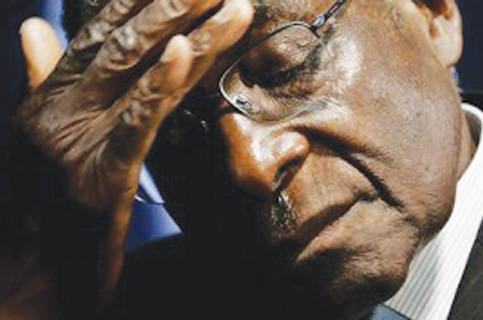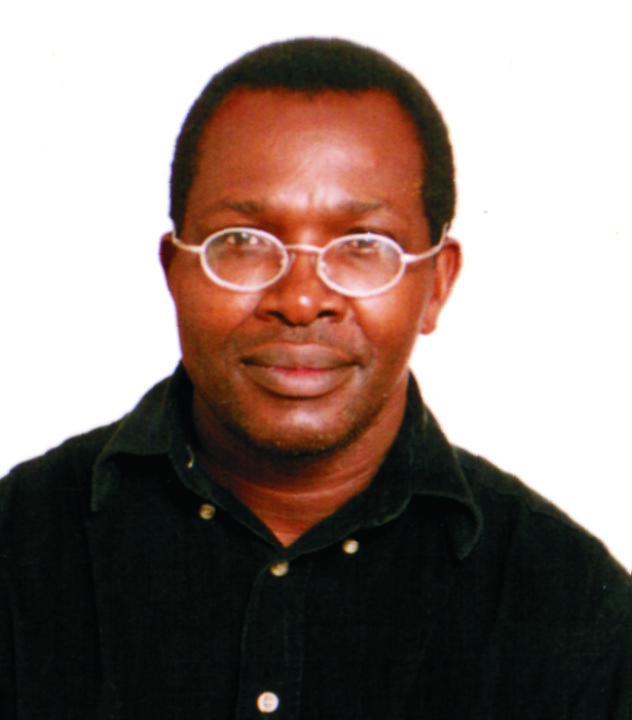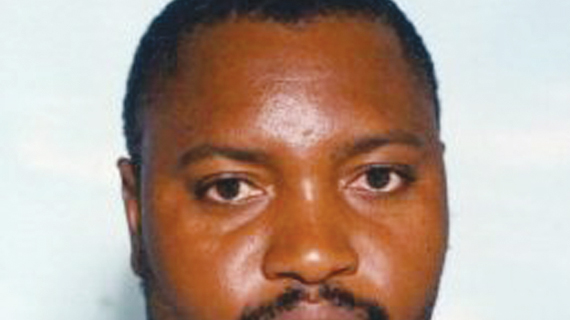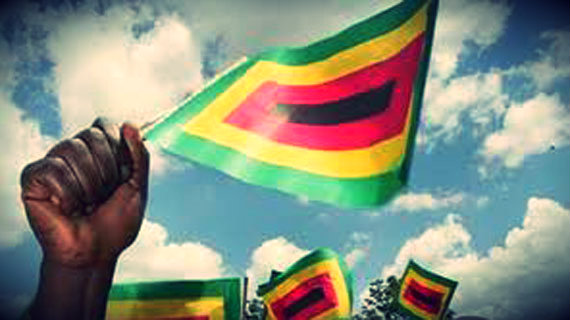
PREDICTING the demise of Zimbabwe’s Robert Mugabe is a favourite past time of many Africa observers in the West.
Report By ROBERT NOLAN
It’s a sport I’ve engaged in from time to time and is, as made clear once again by the 89-year-old’s re-election as President last week, an entirely losing proposition.
Not only did Mugabe himself claim 61% of the vote against progressive leader Morgan Tsvangirai in the hastily called election, Mugabe’s Zanu PF party also swept the Parliamentary polls, taking 160 seats to just 49 for Tsvangirai’s Movement for Democratic Change (MDC-T).
The election has been billed as “free” and “credible” by both the African Union (AU) and the Southern African Development Community (Sadc) and heads of State from South Africa, Tanzania and Kenya have all called to congratulate Mugabe on yet another victory.
Neighbouring Botswana was the only African country to call for an audit of the results.
Foreign observer missions were not allowed to monitor voting, and some have called the African response another nail in the coffin of “African solutions to African problems.”
Like in Kenya, Zimbabwe’s 2013 polls were void of the abject violence that dominated headlines in 2008.
- Chamisa under fire over US$120K donation
- Mavhunga puts DeMbare into Chibuku quarterfinals
- Pension funds bet on Cabora Bassa oilfields
- Councils defy govt fire tender directive
Keep Reading
But irregularities acknowledged by the AU and Sadc, including Zimbabwe’s mysterious voters’ roll and accusations of urban voters being turned away, have led the Zimbabwe Election Support Network to call the vote “seriously compromised.”
It’s a view shared by the US department of State.
“In light of substantial electoral irregularities reported by domestic and regional observers,” Secretary of State John Kerry said in a Press statement, “the United States does not believe that the results announced today represent a credible expression of the will of the Zimbabwean people”.
So long as Mugabe remains at the helm in Zimbabwe, though, this doesn’t matter much.
As Sisonke Msimang writes in South Africa’s Daily Maverick, “Zimbabwe is in need of a Plan B.” So, what does the future hold for Zimbabweans?
There are two broad potential outcomes of the 2013 election, one far more likely than the other. The first outcome is acceptance that the re-election of “Uncle Bob” was inevitable and, at least partially, an expression of the will of the Zimbabwean people — followed by a period of moderate reform among both Zanu PF and the MDC.
As some observers note, Zanu PF ran a better (albeit advantaged) campaign than the MDC, which, lacking the foreign funding it received in 2008 and fair access to State media and institutions, was simply unable to bring the kinds of structural reforms needed to effectively displace Mugabe and Zanu PF.
This scenario implies the end of the MDC Tsvangirai faction, which has struck out on its third attempt to unseat Mugabe.
For members of the opposition, many who have shed blood over the years for challenging Zanu PF at the ballot box, this is a tough pill to swallow.
The party will have to go back to the drawing board and deal with the new set of political realities that emerge during Mugabe’s forthcoming term. That will include recruiting new leadership and finding more effective ways to work alongside the long incumbent party. The same holds true for Zanu PF. Its formula for success in this election is unlikely to be replicated in the future, especially in the inevitable post-Mugabe era.
Indeed, the coalition of Zanu PF cronies, war veteran groups, the State security apparatus and youth faction of the party that has congealed around Mugabe’s cult of personality and allowed him to stay in power for more than three decades will need to modernise and widen its umbrella — especially if it hopes to keep a lid on a frustrated Zimbabwean population and bring about economic growth and opportunity.
Zanu PF leaders should also soften anti-Western rhetoric and the more radical aspects of indigenisation programs to help shake off Zimbabwe’s pariah status in the West and better integrate it into the global economy.
A failure of both parties to reform would lead to the second, less likely, but far more unsettling scenario – massive instability that could eventually lead to popular uprising or at least an increase in violence.
Zimbabweans are often criticised for acquiescing to the autocratic tendencies of the Mugabe regime, but one should not forget that most Zimbabweans are young, connected and increasingly frustrated.
It’s near impossible to gauge the temperature on the streets of Harare from where I sit in New York City, but we’ve seen where that combustible mix can lead to elsewhere.
-Robert Nolan is an editor at the Foreign Policy Association and author of “The Quest for African Unity: 50 Years of Independence and Interdependence.” He was a Peace Corps volunteer in Zimbabwe from 1997-1999.









